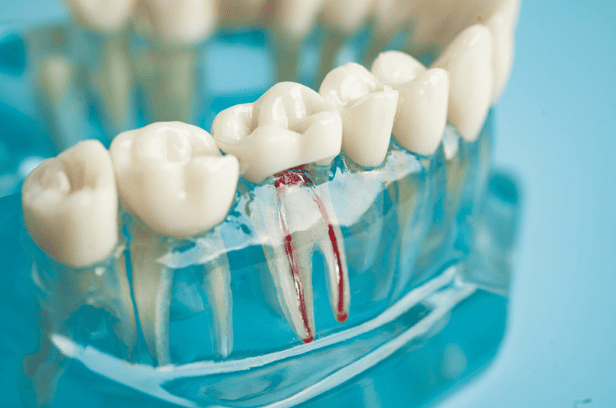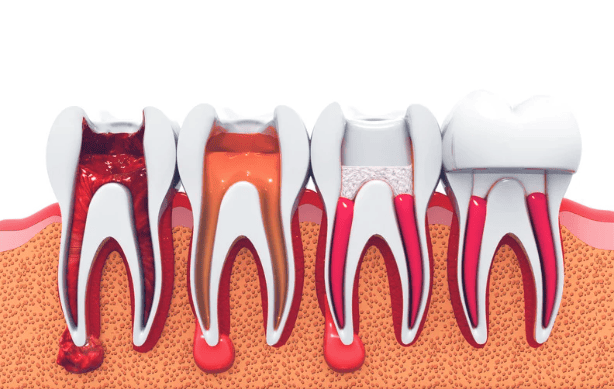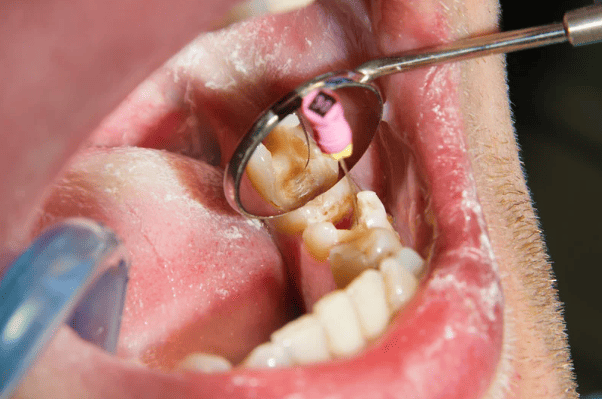
Dr. Constanza María Araya
Dental Crowns, Root Canal Treatment
General Dentist
Speaks: English, Spanish
Root canal treatment involves removing infected or necrotic nerve tissue from the tooth to prevent the spread of infection to surrounding periodontal tissues and the jawbone, preserving the tooth.
Suppose you experience symptoms such as tooth pain or abscess formation. In that case, it may indicate an infection in the central part of the tooth (where blood vessels and nerves are located), requiring root canal therapy.
Our Central dental clinic’s experienced dentists can examine your teeth and provide professional root canal treatment to restore your oral health.

Root canal treatment involves the dentist creating an opening in the biting surface of the tooth to remove infected pulp and abscess material from inside the tooth. The empty space is then cleaned, disinfected, and filled with a special material to seal the area and prevent reinfection.
Endodontic treatment helps you maintain your natural teeth, continue eating the food you love, and limit ongoing dental treatment. With proper care, most teeth that have undergone root canal treatment can last a lifetime.
The tooth is made of two parts: the upper visible part, which is the crown, and the part that lies in the jaw bone and is responsible for anchorage and holding the tooth position, which is called the roots.
The whole Tooth structure have following layers
The root canal extends from the crown to the tip of the root . The root canal may be single or multiple.


A root canal is needed when an infection has affected the pulp of the tooth. If you have any of the following symptoms, it may indicate the need for a root canal:
We’ll do a thorough examination, including X-rays of the affected tooth, to determine if a root canal treatment is the proper course of action.
The procedure consists of:
We use a surgical microscope to show all the cracks and fractures, so we can clean them properly. This cutting-edge technology allows us to provide the best root canal treatments possible. We’ll even show you the inside of your tooth on the TV, so you can see what’s going on.
You’ll be thoroughly numbed before the procedure starts, and we’ll make sure you stay completely comfortable during the process. We have various sedation options, including happy gas, and we always take the time to help alleviate any nervousness you may have. We want you to feel in control of the process, and if you need to take a break, just let us know!

After a root canal treatment on the back teeth, we generally recommend placing a crown over the tooth to protect it from breaking. This is not typically needed for front teeth.
It’s important to look after your teeth when recovering from root canal treatment. After your final treatment, your restored tooth should no longer be painful, although it may feel sore for a few days.
Necessary precautions to take:
Return to your dentist if you still have pain or swelling after using painkillers.
To prevent the further need of root canal procedure :
If you have deep cavities and your teeth are still in good condition, as your dentist will advise you, it is better to get them treated early with a root canal procedure rather than having them extracted.
Sometimes root canals fail to heal the infected tooth.
For example, if your tooth is very damaged, a root canal may not solve your issues. If your previous root canal fails, your dentist will discuss other options:

Dental Crowns, Root Canal Treatment
General Dentist
Speaks: English, Spanish

Cosmetic Dentistry, Smile Design, Veneers, Full Mouth Implants
General Dentist
Speaks: English
Contact us to schedule your Root Canal Treatment consultation. Let us help you achieve the perfect smile with our professional services.